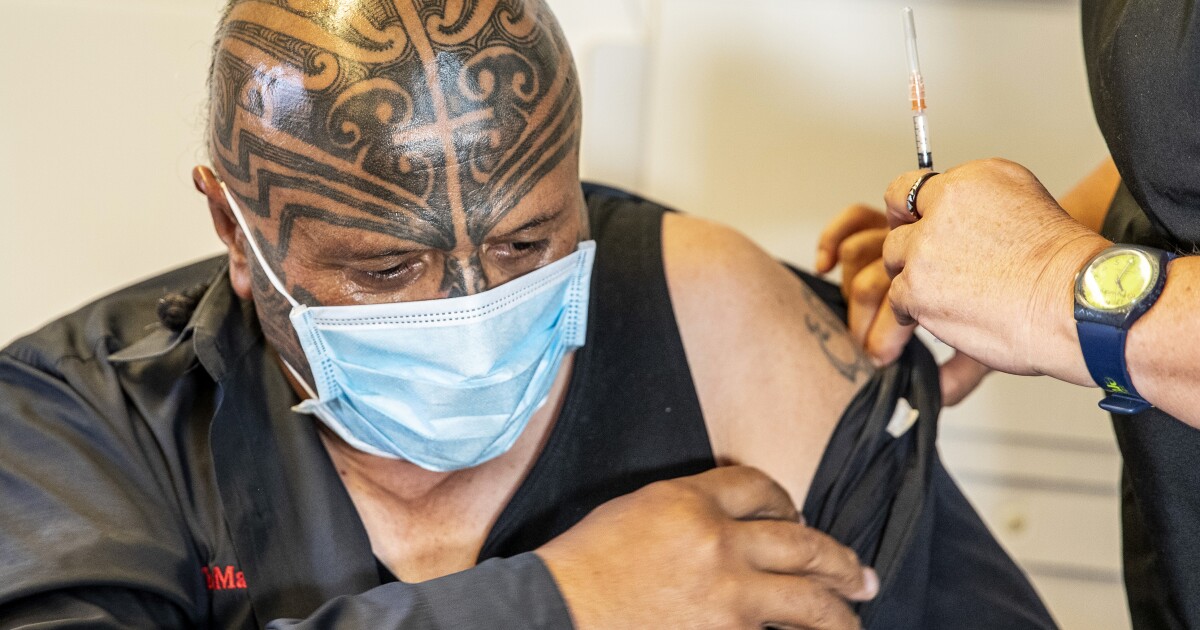Some wealthy nations that received praise last year for controlling the spread of the coronavirus are lagging far behind in vaccinating their populations, and some, especially in Asia, are experiencing a spike in COVID-19 cases.
In Japan, South Korea and New Zealand, the vaccination rate is less than double digits. This is in stark contrast to the United States, where nearly half the population has received at least one dose, and Britain and Israel, where the number is even higher.
These three Pacific nations are not only among the worst in the developed world in terms of immunization, but are behind many developing countries such as Brazil and India, according to their data and the online scientific publication Our World in Data.
Australia, which does not provide a full breakdown of its vaccination campaign, is also performing comparatively poorly, as are many other places that were initially deemed successful in fighting the virus, such as Thailand, Vietnam and Taiwan.
This could change as campaigns accelerate and supplies increase. But until then, previously successful countries are exposed to the virus and face longer delays in reopening to the world.
In Japan, for example, only about 1% of its population is fully vaccinated and suffers a major outbreak just 10 weeks after the start of the long-delayed Olympic Games, where the presence of foreign fans will not be allowed.
The Japanese government announced last week the extension of the state of emergency until the end of the month, and on Saturday it confirmed 7,000 new infections in one day, its worst figure since January.
Bureaucracy has been part of the problem. The countries with the most deaths caused by the coronavirus set aside the rules of the game: they accelerated the approval of the emergency use of the drugs and delayed the second doses beyond the recommended period to maximize the number of people who received the first.
In Israel, Prime Minister Benjamin Netanyahu personally negotiated with Pfizer CEO Albert Bourla to gain early access to the vaccine developed by the drugmaker and BioNTech, and mobilized the military for inoculations. In the United States, some groups handed out free buns, drinks and even marijuana to get people to roll up their sleeves.
Japan opted for a more traditional approval process that required an additional phase of clinical testing for vaccines that had already been tested elsewhere and that were being used massively in the rest of the world.
And once the campaign began, the authorities found that there was a shortage of people to inoculate. Under their conservative medical culture, the Japanese only rely on doctors and nurses to prick themselves. Getting vaccinated by pharmacists or in pharmacies as in the United States, or by volunteers with no health experience other than a brief training as in Great Britain is unthinkable there.
New Zealand also applied its own approval process before giving the green light to the Pfizer-BioNTech drug in February, two more months after the United States validated its emergency use.
In South Korea, at first the authorities insisted on waiting and seeing what happened to the vaccines, claiming that the outbreak there was not as serious as in America or Europe. But as the infection rate worsened in recent months, popular pressure increased and the government accelerated negotiations with pharmaceutical companies.
Taiwan has put the first dose of the vaccine to less than 1% of its population, after receiving a small part of the millions of doses it ordered. In addition, it has developed its own vaccine, which authorities say will be available for emergency use at the end of July.
___
The Associated Press journalists Mari Yamaguchi in Tokyo; Kim Tong-hyung in Seoul, South Korea; Huizhong Wu in Taipei, Taiwan, and Rod McGuirk in Canberra, Australia contributed to this report.
–


